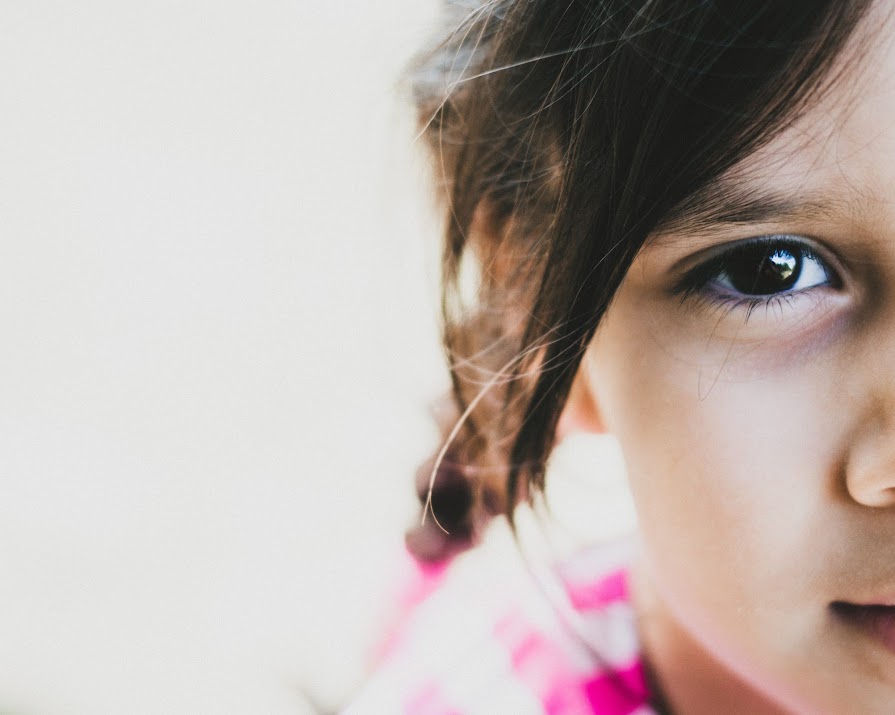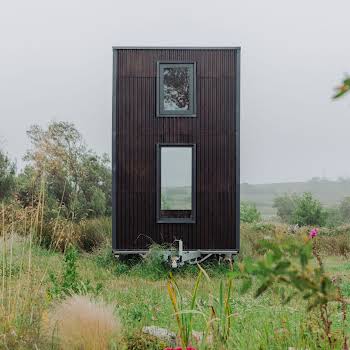By Jessie Collins
22nd Jan 2018
22nd Jan 2018
Achtung, baby is right. A new book about how Germans teach their children to be independent and resilient (selbstandig) is the parenting inspiration we’ve been waiting for.
So we’ve had Battle Hymn of the Tiger Mother, The Danish Way of Parenting and Parenting Without Borders, and the latest culture to come under the parenting microscope is Germany. But before you roll your eyes and feel the desire to bat away yet another fad, there is something we might glean from the art of Selbständig.
Tssk, said the woman beside me as happily ignored the red pedestrian light and gleefully leapt on the road to J-walk, as per usual. Except this wasn’t on Dublin’s flagrantly law-flaunting streets, it was in Frankfurt, and I was breaking a cardinal rule. You never cross on a red man. They teach it from year dot. They even have a rhyme for it. ‘Ampel rot. Mickey Maus tot’ roughly translated as ‘Red man, Mickey Mouse dead’. Not only that, but just in case you had continued in your transgression, above the green man it says in plaintive German, ‘only cross on the green man, you are an example to children’.
So the woman was right to scold me. In Germany, 50% of primary school kids walk to school, either in groups or by themselves. This compares with just a quarter in Ireland, the last time it was up near half was 1986, a time you could argue when parents might have felt a lot safer sending their kids out to navigate those journeys. But it is not because of stranger danger that parents need to worry more now.
The reason German parents can rest more easily is because everyone obeys the rules, which ironically gives everyone more freedom. Kids can cross the road, safe in the knowledge that when cars see a red light they will actually stop, and not take it as a sign to hit top speed just to see exactly what shade of red the light is as they screech through it.
But walking to school is just one of the ways German kids do things that are now almost totally off the menu for other cultures. It is part of a encouragement for early independence that they call “selbstandigkeit” or self-reliance and the basis for which US author Sara Zaske’s recent book Achtung Baby, The German Art of Raising Self-Reliant Children, which has recently taken the US by storm.
The philosophy goes much further than the ability to get from A to B unaided -it is about being allowed to experience and experiment more, about making your own mistakes. It is the antithesis you could say, of helicopter parenting. The morning commute aside, German kids use knives, real live sharp ones, and play with fire. At seven or eight they go on school camping trips in the woods for several days at a time, just about when we are managing to convince our precious cargo to go for a sleepover down the road.
While we are baby proofing our way around the house in a furtive attempt to avoid any possibility of a graze, German kids are chopping onions and and tying their shoes. While we pad out our playgrounds and fence off any puddle or slippage, German playgrounds are actually fun – they have big pirate ships that kids can hang off, even at more then three feet above the ground. There are unsupervised zip lines, and parents tend to go get coffee and not hover over their little ones’ every move.
The thinking is, if you over-supervise and regulate children’s behaviour, they never really get the confidence to try things for themselves, and become separate to you. German parents are encouraged to let their children roam a little, to let them discover things on their own. Children, they believe, learn to make good decisions by making decisions, not by following regulations.
Children are encouraged to make their own decisions, even down to choosing their own clothing. As long as their underpants are on the right way and they don’t run a risk of contracting pneumonia, how bad can that be? There is also an emphasis on letting kids work out their conflicts amongst themselves. Intervening is only deemed necessary if someone is going to get their hair pulled (maybe), or a black eye.
Though German kids stay in kindergarten for longer, at three parents are met with and explained to that your child isn’t a baby anymore and has to start doing more for themselves. From there the real encouragement begins to mind your possessions, to get your own coat and shoes on. Taking responsibility for yourself really begins, something anyone who is still harassing their five year old into their clothes deeply regrets not doing.
The fact is though, we have become so focussed on protecting our kids that we are losing the skills, and the culture, to engender courage and independence in them. If, as the recent DCU study found that only one in every 250 Irish 12-year-olds can hop, skip, jump and run, then as parents, we have seriously gone awry. To be taught independence both in body, and in mind, is possibly the most important lesson to impart.
To be taught confidence in what your body can do, and to test your limits is essential. ‘Self confidence,” Samuel Johnson wrote, “ is the first requisite to great undertakings.” It’s time perhaps we started thinking about what, and whom, we are building. Personally, I’d rather they could walk to school at eight and maybe have a daydream on the way, even if it meant missing assembly. But maybe that’s just me.
Photo credit: Andrik Langfield, Unsplash























